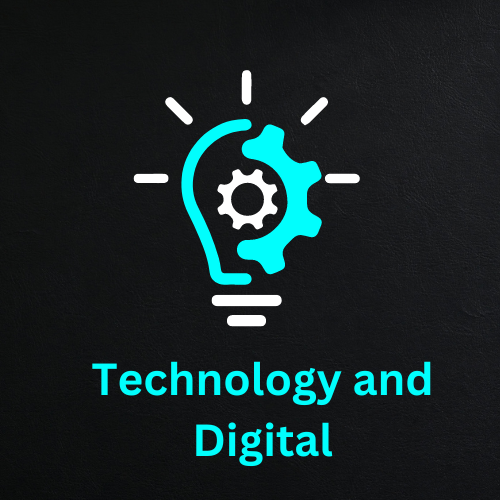Quantum Computing: A Beginner’s Guide to the Future of Technology

Every few decades, a technology emerges that promises to rewrite the rules of how things work. Today, that technology is quantum computing. While classical computers rely on ones and zeros, quantum computers use an entirely different system—one that could solve problems currently deemed impossible. But how does it work, and why is it creating such a buzz?
This guide explores quantum computing in a way that anyone can understand. It breaks down how the technology works, where it’s being used, the challenges that still exist, and how it might impact everyday life in the near future.
What Is Quantum Computing, Really?
At its core, quantum computing is a new way of performing computations using the principles of quantum mechanics. Unlike classical bits, which are either 0 or 1, quantum computers use qubits, which can exist as 0, 1, or both at the same time thanks to a property called superposition.
Imagine flipping a coin. While in the air, it’s both heads and tails—until it lands. A qubit works similarly. This strange behavior allows quantum computers to process massive combinations of possibilities simultaneously, instead of checking each one individually like classical computers do.
Key Concepts in Quantum Computing:
- Superposition: The ability of qubits to be in multiple states at once.
- Entanglement: A connection between qubits where the state of one affects the other instantly—even at a distance.
- Quantum Interference: The way quantum states interact, allowing for filtering out wrong answers in complex computations.
Practical Tip:
When trying to understand quantum concepts, think in metaphors. Superposition is like multitasking across realities. Entanglement is like twins feeling each other’s pain, no matter where they are. These mental models make the topic less intimidating.
Why Is Quantum Computing So Important?
Quantum computing isn’t about making today’s computers faster. It’s about solving problems they can’t solve—at least not within a reasonable time frame. In 2023, IBM introduced its 433-qubit processor, a major leap from earlier designs. As of 2025, efforts are being made to surpass 1000 qubits, which could unlock entirely new applications.
Use Cases That Could Transform Industries:
- Medicine: Modeling molecules to design drugs faster and more effectively.
- Finance: Running simulations for portfolio optimization or fraud detection.
- Logistics: Optimizing routes and deliveries in real-time for global supply chains.
- Climate Science: Simulating environmental models too complex for classical systems.
- Cybersecurity: Breaking current encryption—but also building new quantum-safe encryption systems.
Recent Development:
In early 2025, a collaboration between Google and European researchers demonstrated a quantum advantage for solving a complex physics simulation. Though not yet practical for commercial use, it marked another milestone in proving quantum’s potential beyond theory.
Practical Tip:
To follow quantum news, subscribe to newsletters from major research labs (IBM Quantum, Google AI, MIT Tech Review). These sources offer simplified summaries without diving too deep into the math.
The Limitations and Challenges of Quantum Computing
Quantum computing isn’t ready for mass adoption—yet. There are still hurdles to overcome, both in the hardware and in how the technology is used.
1. Qubit Stability
Qubits are fragile. They need near-absolute-zero temperatures to function. Any interference—like sound or heat—can collapse the quantum state, causing errors.
2. Error Rates
Quantum systems are prone to mistakes. Unlike classical computers with near-perfect accuracy, quantum operations often require multiple attempts to get the right answer.
3. Scalability
Building a quantum computer with millions of stable qubits (which is necessary for real-world use) is an enormous technical challenge. The current largest systems are still in the hundreds of qubits.
4. Algorithm Development
Quantum algorithms are not just faster versions of existing ones—they need to be rewritten from the ground up. There’s still a lot of research needed to find useful applications.
Practical Tip:
Developers interested in experimenting with quantum code can start with platforms like IBM Q Experience or Microsoft’s Azure Quantum. These platforms offer simulators that run on classical hardware but behave like quantum systems.
How Will Quantum Computing Affect Everyday Life?
For the average person, quantum computing won’t mean a new type of laptop. Instead, it will work behind the scenes—in drug research, smarter energy grids, or fraud prevention systems in banking.
One possible change could involve internet security. Today’s encryption relies on the difficulty of solving large mathematical problems. Quantum computers may one day solve these in minutes. That’s why researchers are already building quantum-resistant encryption to stay ahead.
In fields like healthcare, personalized medicine could become the norm. Quantum simulations might predict how an individual’s body will react to a treatment, leading to more targeted therapies.
Hypothetical Scenario:
Picture a world where traffic lights adapt in real-time based on thousands of sensors and quantum calculations. Commutes are shorter, air pollution is lower, and city planning becomes smarter. That’s the kind of ripple effect quantum tech could have—even if it’s not directly visible to most people.
Practical Tip:
Professionals in any field—not just scientists—should start learning basic quantum concepts now. In the next 5–10 years, industries like legal, logistics, or marketing may rely on quantum-powered platforms without needing everyone to be quantum engineers.
Getting Involved: How to Start Exploring Quantum Tech
1. Learn the Basics
Free courses on platforms like edX, Coursera, and YouTube explain quantum mechanics and computing for beginners. Look for “quantum for non-physicists” courses for accessible content.
2. Experiment with Quantum Code
Languages like Qiskit (Python-based) and Cirq (by Google) allow curious minds to write basic quantum algorithms—even without a quantum computer. These run on simulators but help build foundational skills.
3. Join a Community
Online forums like the Quantum Computing Stack Exchange or Reddit’s r/QuantumComputing offer real-world discussions, advice, and opportunities to ask questions without judgment.
4. Follow Industry Leaders
Companies like IBM, D-Wave, and Rigetti regularly post updates, whitepapers, and demos that help demystify the tech. Subscribing to their newsletters or following on social media can help stay updated.
Conclusion: The Quantum Future Is Closer Than It Seems
Quantum computing is no longer science fiction. With every breakthrough, it moves closer to becoming a practical part of industries, research, and innovation. It won’t replace classical computers—but it will handle the problems they can’t solve.
Even though the technology is still evolving, now is the perfect time to start learning. Whether a student, a tech enthusiast, or a professional in another field, understanding the basics of quantum computing opens doors to the future.
What possibilities excite you most about quantum computing? Imagine how this technology might change your industry or daily life. Feel free to share thoughts or ask questions in the comments section below!




